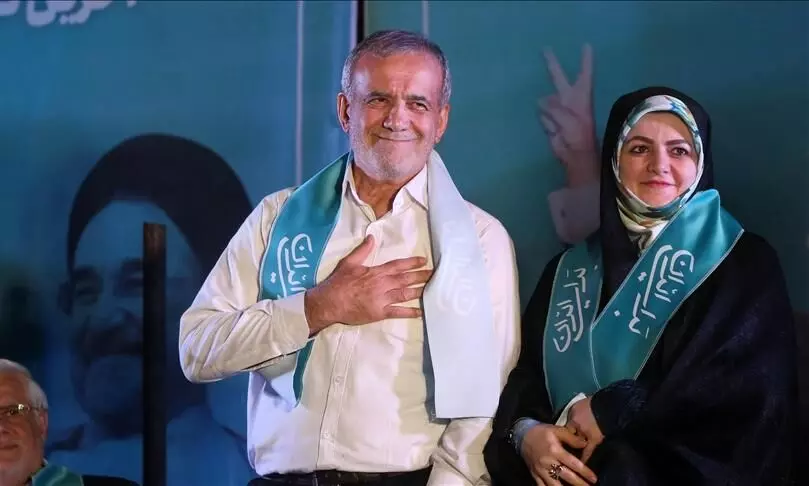
Reformist Masoud Pezeshkian wins Iranian Presidential runoff
text_fieldsKnown to be a reformist, Masoud Pezeshkian secured a decisive victory in Iran’s presidential runoff election, receiving 16,384,403 votes against ultra-conservative Saeed Jalili's 13,538,179 votes, with a turnout of 49.8%, a significant increase from the record low of 39% in the first round.
The election saw over 1 million invalid votes, with Pezeshkian emerging as the leading candidate after surpassing three conservative rivals in the initial round.
Pezeshkian's campaign focused on progressive policies such as allowing women the choice to wear the hijab and ending internet restrictions that force citizens to use VPNs to bypass government censorship.
His campaign slogan, “For Iran,” emphasized his commitment to being a voice for the voiceless and advocated against violent responses to protests. His personal integrity and decade-long absence from ministerial office resonated with many voters, despite criticisms of his naivety in high politics, The Guardian reported.
Soon after his victory, his supporters raised the demand for the release of political prisoners, reflecting the pent-up demands he might find challenging to meet. Although he has pledged loyalty to Iran’s supreme leader, Ayatollah Ali Khamenei, Pezeshkian has also stated he would resign if thwarted and call for public withdrawal from the political process.
The extent of the president’s power in foreign policy remains debated, but Pezeshkian argued that reducing the country’s 40% inflation rate requires easing sanctions through improved international relations.
Jalili, a former nuclear negotiator, maintained that Iran could thrive through stronger economic ties independent of the West. He viewed Iran as a sanctuary rather than a cage. Pezeshkian’s victory is notable as no reformist candidates were permitted to stand in the 2021 election, and many believed that Iranian reformism had lost its momentum, with voters feeling that a “shadow government” held the real power.
The repression of the “women, life, freedom” protests in 2022 further fuelled scepticism about electoral change.
However, Pezeshkian’s success in the first round, despite the low turnout, boosted his campaign team’s confidence. It became evident that supporters of centrist conservative Mohammad Bagher Ghalibaf were not inclined to transfer their votes to Jalili.
In the backdrop of the election, the political landscape remains challenging for Pezeshkian. The parliament, dominated by conservatives, has the power to impeach ministers, posing a significant obstacle to his administration. The snap presidential election was triggered by the death of incumbent Ebrahim Raisi in a helicopter crash in May, disrupting succession plans within the regime. The decision on succession rests with the assembly of experts.























